while I gather a fresh round of essays for the fall. Please come back at the end of this month!
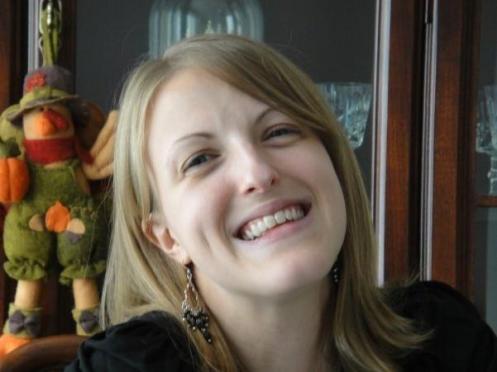 Alexandra Jane Yarrow is a librarian at the Ottawa Public Library. She’s also a college instructor, blogger, recovering poet, and a voracious reader sitting on a tremendous oeuvre of (99%) unpublished fiction and poetry from her high school and university years (and wondering if she should get back into those fields). Visit Alexandra’s site at http://ottawapubliclibrarian.blogspot.com/
Alexandra Jane Yarrow is a librarian at the Ottawa Public Library. She’s also a college instructor, blogger, recovering poet, and a voracious reader sitting on a tremendous oeuvre of (99%) unpublished fiction and poetry from her high school and university years (and wondering if she should get back into those fields). Visit Alexandra’s site at http://ottawapubliclibrarian.blogspot.com/
I don’t say this often, when asked, because it generally lends a tone of excessive sincerity to most cocktail parties, but I fell into my chosen profession because of a fervent belief in the ability of education and reading to dispel ignorance, and therefore prejudice. I want to tell you about the librarian stereotype, but I’m preaching to the converted because, as Naipaul reminds me, there is also the female writer stereotype.
The librarian stereotype, if you are not familiar with it, is the bun-wearing, bespectacled, sharp-edged shushing spinster, the woman Donna Reid’s character in the movie It’s a Wonderful Life would have been had she not married Jimmy Stewart’s George. There has been much backlash within my profession, most markedly in recent years, against this stereotype (see particularly The Hollywood Librarian and You Don’t Look Like a Librarian). While I applaud these efforts, I sometimes think there is a jagged edge of self hatred hiding in this discourse, mixed with generous portions each of anxiety and self-congratulation: we seek to distance ourselves so much from the stereotype that we go around boasting about how we love noise in the library, how we hate the smell of old books, and, goodness, we would never own a cat or wear glasses. See, look, we have tattoos. We like to make music videos.
Now, don’t get me wrong. I like tattoos. I also like cats, and the smell of old books. I enjoy both quiet and noisy libraries, depending on my mood. I’m multifaceted, as are any librarians … and as are any human beings. So why can’t we seem to shake the dehumanisation of the librarian?
Librarianship is a female-dominated profession. Ironically, I grew up in a household where my mother blazed a trail in a male-dominated one – the priesthood within the Anglican Church of Canada. I suppose I subconsciously thought I would walk an easier path in my profession. In some ways, I do: I am blessed with incredible women for mentors, and I am astounded every day by their strength, creativity, passion and commitment to improving the profession. In a world that overwhelmingly still struggles with these concepts, we are challenging what it means to be a woman, to wear pink, or a skirt, and still be the senior person in the boardroom (see – Hilary Clinton’s pantsuits; see also – Barbara Ehrenreich on breast cancer’s “pink kitch”).
I know that all around me are men and women, my fellow librarians, who daily provide “universal access to the universe of ideas” (thank you, Windsor Public Library) in varied communities (in cities and towns, schools and universities, government and businesses). Despite obvious passion, however, many librarians are terrible advocates for our profession. We are only now discovering the elevator speech and learning to build business cases. These are issues symptomatic of a profession that attracts introverts, which doesn’t help us escape our stereotype any faster. We’re out there fighting for the big things: intellectual freedom, fair copyright, equitable access to information for all people, multiple literacies, and, of course, the love of reading. Yet we are still too often portrayed as gate-keeping pushers of print media who are obsessed with the Dewey Decimal System.
To what extent does the librarian stereotype have its roots in the fear of women in positions of power, women who are guardians of literature and learning, women who question the status quo, women fighting for a cause, women who want to make a difference? That’s a far too tangled web to un-weave (for more on this, read “Power, Knowledge, and Fear: Feminism, Foucault, and the Stereotype of the Female Librarian” in the July 1997 issue of The Library Quarterly), but I think it’s safe to say that the easiest way to try to minimise the impact of a powerful force is to try to undermine its credibility. What I really struggle with, though, is that often we don’t do ourselves any favours: in an attempt to dispel one stereotype, we’re often simply constructing another, a cartoonish riotgrrrl librarian who can’t be taken any more seriously than Marian the Librarian.
 Jillian Schedneck is the author of Abu Dhabi Days, Dubai Nights, a travel memoir that will be published by Pan Macmillan Australia in March 2012. Her work has also been published in Brevity, Wet Ink, The Common Review, Fourth River, among others. She is also a PhD candidate in Gender Studies at the University of Adelaide in South Australia, where her research focuses on the relationship between gender, national identity and creative expression.
Jillian Schedneck is the author of Abu Dhabi Days, Dubai Nights, a travel memoir that will be published by Pan Macmillan Australia in March 2012. Her work has also been published in Brevity, Wet Ink, The Common Review, Fourth River, among others. She is also a PhD candidate in Gender Studies at the University of Adelaide in South Australia, where her research focuses on the relationship between gender, national identity and creative expression.
As the author of a travel memoir about my experiences in Abu Dhabi and Dubai, and a PhD candidate doing research on women’s experiences with modernization and national identity also within the United Arab Emirates, I speak about the Arab Gulf often, and brace myself for the myriad of Orientalist responses: You must be so brave to live in that patriarchal society.… It’s wonderful that you worked with the women there. I think they are the only ones who can save that culture. … When you go back, I hope you can convince those women to take off their veils. After all, every woman wants to show her beauty… Did you hear about the reporter who was assaulted on Tahrir Square…Did you hear about the woman in Saudi Arabia who was beaten for being raped…Did you hear about the Muslim woman who…. I try not to balk at these comments for their conflation of the UAE and Arab Gulf with ALL Middle Eastern nations and their Eurocentric, sensationalized accounts of ‘other’ cultures. Instead, I try to explain that I found more commonality than differences, that a woman’s freedom can take many forms, and that we all live in patriarchal societies. I am most often met with blank stares.
After reading a year’s worth of scholarly sources on Orientalism, Eurocentrism and colonist attitudes, it is even more difficult to listen to these comments. It would be easy to think of these responses as merely cartoonish, vanishing attitudes from an era long past. Yet then I am reminded of the students I tutor in a course called Gender and Race in a Postcolonial World, who admitted that because of American movies and international media, they assumed the word ‘jihad’ meant terrorism, that lifting one’s veil meant liberation; they thought that Muslim women who cover their bodies and faces were unnerving because their appearance was alien to their experiences. These admissions, then, are understandable, and in the context of a classroom, I am much more sympathetic. The issue gets thornier when I speak to men and women older than myself, who respond knowingly about life in the Middle East even though they have never been. At these times I am proud of my students for acknowledging and correcting bias.
Yet I am not an insider on Arab Gulf or Middle Eastern culture. I am a white American woman who moved to Abu Dhabi at twenty-six because I wanted a radically different experience from the world I knew, and Abu Dhabi University was the only institution I contacted willing to hire a young graduate. I felt alienated by my first Ramadan, when public eating was banned and all the shops were closed. I felt uncomfortably exposed in a classroom full of fully covered girls and as if on enemy territory on the Abu Dhabi city streets full of South Asian men. Again, my teaching aided in real understanding, sympathy and camaraderie.
In my travel memoir, Abu Dhabi Days, Dubai Nights, I write about teaching on the female side of the university building, and the connections made with female students through our common experiences as women. They shared stories of successful arranged marriages and their thoughts on the poor, jilted Western women they watch on Dr. Phil; they told me about divorce and single-motherhood, the choice between single life and becoming a second-wife. They complained about their lack of access to meeting men and begged me to escort them to the male-side, all while acknowledging how fortunate they were to live in a culture that prevented them from making “mistakes” with men before marriage. While some of their talk was wildly different from what my American girlfriends and I would chat about when discussing the men in our lives, the basic ideas were the same: the struggle of finding a reliable partner, and the gratefulness of those who had. I interrogated my own “mistakes”, the context in which I forged my own beliefs about romantic relationships, what I wore and why and how I expected men to treat me. All of these conversations with my female students took place while I was involved in a serious yet still uncertain relationship, and those talks helped me better understand what brought me to this point in my life.
But it’s difficult to get all of this across to the people I speak with about my experiences in the UAE and the Middle East in general. Their minds already seem set against the idea that there are other ways of being a woman in this world. This is why I hope that teaching and my travel memoir can do some of this translation work through telling the story of my experiences, unfolding what I learned from my years spent teaching women and men in the Middle East.
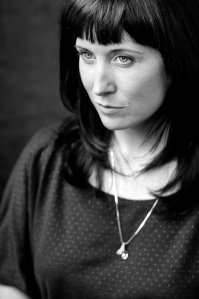 Joanne Valin holds a Ph.D. in American literature. She teaches literature and composition, and her poetry has been published in the Canadian anthology The Common Sky: Canadian Writers Against the War.
Joanne Valin holds a Ph.D. in American literature. She teaches literature and composition, and her poetry has been published in the Canadian anthology The Common Sky: Canadian Writers Against the War.
Writing is a political act. You’ve heard this before. It is not a new idea, but it is one that bears repeating here and now. The VIDA statistics on the literary magazine and publishing industry (“Count” 2010) lay bare more than a problem of numbers. We are facing a systemic inequality that has somehow caught us off guard. The question now becomes: How do we respond?
It is not my intention to suggest that all writing must arrive through overt political purpose, though I would like to see statistics on women who publish political content and suspect the numbers would be even more grim than what we have seen in the broader publishing landscape. I mean to return attention to the idea that no matter how far removed from the world of political debate, all writing does have a political function. Be it overt or implied, by the very nature of being produced from a distinct perspective and through a unique set of circumstances–be these privileged, impoverished, abused, oppressed, empowered, or otherwise–in a particular cultural moment and social context, writing is a political act. More than this, right now, in the hands of a woman, writing is a radical necessity.
It is no mean feat to reduce the plight of women in the publishing industry in the West to an inconsequential sidebar for the more pressing human rights issues women face around the globe. It’s an easy move. What right do we have to complain, anyway? Women and girls are abused, cut, mutilated, abducted, raped, murdered, bought and sold, hanged, stoned to death, or buried alive all too frequently, all too habitually, in too many parts of the world, and this is to say nothing of the codes of “honour,” ceremony and silence that protect and perpetuate such atrocities. This is to say nothing of the dangers faced by those who break such codes and dare to speak or write against such circumstances from within. This is to say nothing of those who have simply disappeared.
Beneath the glossy surface of a contemporary Western perception of equality, the same perception so many hold, that equality writ large has been achieved in the West and feminism is just a name for stirring up controversy where none is warranted, there is another truth. It is one barely palpable to some and hardly relevant to others: that beneath the wars and violences occurring across the globe, beneath the political and economic upheavals, beneath the scourges of fundamentalism, beneath the master narratives of various religious doctrines, beneath the comfortable economic rationalizations of conservatism, another war is waged. This is an unspoken and an unspeakable war. It is trans-historical and trans-cultural. It is waged on myriad fronts and in myriad ways, in some cases overtly and in others as a matter of consequence, against the feminine other. I use such a term to reference the matrix of subjectivities that exist outside a primary masculine ideal or culturally perceived norm. Here, women’s bodies, racialized bodies, and sexualized bodies are imperiled to various degrees: from the limiting of reproductive rights, health care or equitable legal representation for women to the limiting of civil rights or for those judged separately based on gender, sexuality, race, religion or caste; and from the censorship of those who speak out to the punishment, abuse, exploitation or murder of those whose very subjectivity threatens a normative imperative. Such a war functions to disenfranchise, humiliate and repress the perceived threat of difference. As a result of such a war, too many voices are unceremoniously ridiculed, ignored, silenced, or snuffed out. This is not a war waged by men, and to blame men is to miss the point. This is a war of ideology and fear that functions through gender difference to mobilize power; and, yes, it is a social, cultural and political animal.
And here is where the literary world converges with the real: writing, above all else, is a citizenship–a meeting of logic and reason with the imagination, with one’s subjectivity, with one’s humanity, with one’s community, with language itself, and with the politics of expression.
That women writers do not share an equitable citizenship with their male colleagues in the publishing industry today reflects trends of inequality spreading across the sectors. In her recent TED lecture, COO Sheryl Sandberg explains that in fact “women are not making it to the top of any profession anywhere in the world,” noting that of the 190 Heads of State at the helm of global politics, only 9 are women; of all parliamentary representatives across the globe, 13% are women; in the corporate sector, women in C-level jobs and board seats make up only 15-16%; in the not-for-profit world, women at the helm make up about 20%; these numbers “have not changed since 2002,” Sandberg explains,”and they are moving in the wrong direction” (“Why we have too few women leaders,” December 2010). These statistics are perhaps not surprising, yet Sandberg highlights a series of social complications that should be, including the fact that “Success and likability are positively correlated for men and negatively correlated for women” (“Why we have too few women leaders”). To make her point, Sandberg references the Heidi Roizen Study, a survey conducted to measure the impact of gender stereotypes on subjective performance evaluations, where Stanford professor, Frank Flynn presented his business students with the results from a previous Harvard case study on successful venture capitalist Heidi Roizen. Flynn altered the original materials in only one way: he changed the name and pronoun of the subject from Heidi to Howard for one section of the class. Flynn explains: “I had the students go online and rate their impressions of ‘Roizen’ on several dimensions. As you might expect, the results show that students were much harsher on Heidi than on Howard across the board. Although they think she’s just as competent and effective as Howard, they don’t like her, they wouldn’t hire her, and they wouldn’t want to work with her. As gender researchers would predict, this seems to be driven by how much they disliked Heidi’s aggressive personality. The more assertive they thought Heidi was, the more harshly they judged her (but the same was not true for those who rated Howard)” (Flynn, qtd in “Gender-related Material in the New Core Curriculum,” Stanford Graduate School of Business News). The survey both measures and exposes an unfair and systemic social bias against women that disrupts otherwise rational thinking in a particular (and peculiar) way.
Drawing attention to the discomfort students felt with Roizen’s assertiveness, Sandberg paraphrases the students’ feeling that Heidi Roizen is “a little political.” What does it mean to be a “little political”? Why, when applied to a woman assertive in her field, is this little label synonymous with apologia for that which we will reject? It is language echoing that of so many of my students in discussions about women who speak or write for a public: “It’s a good essay, but it’s political.” Or: “I like this author because her novel is political but it’s not too ‘in-your-face.’” So many of our undergraduate students arrive at university conditioned to live in fear of politics and feminism. Let us demystify the language. Without acknowledging the politics of expression–and teaching our young readers and writers to do the same–we deny ourselves the opportunity to improve our circumstances. We are in the midst of a vibrant new cultural landscape where the private meets the public at every turn, and the written word is both our best safeguard and best conduit for connection, community and change. We must teach our students that in this landscape it matters that they read and write; it matters what they read and write; it matters that they do both with awareness and a keen critical eye. But none of this matters without a clear sense that the problems of inequality that we face are not men’s problems or women’s problems but the problems of a collective of which they are a part and for which they share a vigilant responsibility.
Let us move forward by first conceding that our common ground is indeed political.
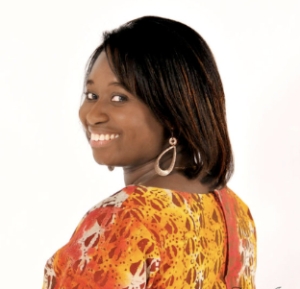 Dr. Mary Ashun, who also writes under the names Asabea Ashun and Abena Apea, is Assistant Professor of Education at Redeemer University College, Ontario. She is the author of Mistress of the Game (Kente Publishing, Ghana)and The Adventures of Kobby Badu-Smith (Kente Publishing, Ghana, and her new book This African Child is agented by The Bukowski Agency, Toronto. She is the creator of (and the host for) the literary show Book ‘Em TV on Rogers TV.
Dr. Mary Ashun, who also writes under the names Asabea Ashun and Abena Apea, is Assistant Professor of Education at Redeemer University College, Ontario. She is the author of Mistress of the Game (Kente Publishing, Ghana)and The Adventures of Kobby Badu-Smith (Kente Publishing, Ghana, and her new book This African Child is agented by The Bukowski Agency, Toronto. She is the creator of (and the host for) the literary show Book ‘Em TV on Rogers TV.
Visit her website at www.maryashun.com
“There’s an African proverb about a lion, a wolf and a fox—three ‘friends’ that go hunting. Everyone is hungry after the chase and they finally settle down to share the sumptuous meal they all deserve to have. The lion asks the wolf to give a portion of the spoils to each of them. The wolf does so, reserving the best portion for himself. The lion raises one of his mighty paws in anger and kills the wolf, after which he asks the fox to ‘share the meat better’. The fox gives everything to the lion, an action that surprises the latter. “When did you learn such wisdom?” the lion asks. “When I heard the wolf’s head crack,” replied the wily fox.
Ah…to be fox-y…
The only female writer I remember having to read in High School Literature class was Ama Ata Aidoo, author of Changes; every other writer was male. In my teen mind, women didn’t get published–otherwise there’d be more of them. Aidoo’s stories chronicling the challenges and achievements of her female characters have always taught me something about the reality of being a woman in postcolonial Africa, 21st century Africa or the Diaspora. I’m trying to be like the fox in learning from the experiences of female writers but lately, I’ve become acutely aware that for me, there’s always going to be another layer; being a woman of colour. No lie—the stories I want to tell don’t often jive with what my western audience wants to hear. I don’t want to write about African women in slavery, African women with AIDS or African daughters sold as brides for five cowrie shells, some kola nuts and a cow. I’m not saying they don’t exist—they do, but they’re not all that African women are about. I’m drawn to give voice to narratives that explore why an African-born woman living in Canada, is afraid of losing her ‘Africanness’ —whatever that is —and why a dark skinned woman has three children with three different men – all white – because she thinks the tanned look of biracial children is superior. I want to tell the story of the widowed woman in a village who is quietly building a business empire based on shea butter, as well as the African woman whose husband buys her flowers every week because…he just loves her. Which makes it disconcerting when an agent or editor says,
“Lovely…but this writing isn’t African is it? – Isn’t someone going to flee something?”
How can I march with my global sisters towards total liberation when I don’t write stories of the liberated? A friend recently read the first draft of a novel I’m writing (it’s tentatively called ‘Serwa Akoto’s Diary’) and made an acute observation; (try to say this with an African accent).
“Ei, be careful ohhhh….you always have this strong, no nonsense type woman in all your stories ohhhhhh!”
As if that’s a bad thing, I retort. Why not write about the strength of a woman? Why not show how deeply women think about themselves, their men, their children and their lives?
My grandmother Nana, an unschooled farmer, was the first feminist I ever knew, and she looms large in my work. Nana left me her oral proverbs because she couldn’t write in English. In a culture where she knew I’d constantly be reminded that a man was the de facto head of the family, she would remind me that power resided in the neck.
“…have you ever seen a head move by itself? The neck turns the head whichever way the neck thinks best.”
I think she’d be charmed to read what I now write. High Five Nana!”
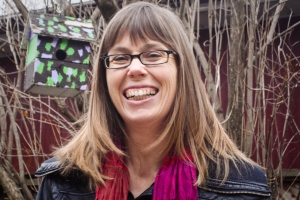 Jill Bryant is a freelance writer and editor who also writes nonfiction books for children and book reviews for Quill & Quire. She is the author of Dazzling Women Designers, Backyard Circus, Making Shadow Puppets, Amazing Women Athletes, and many others. She freelances for Scholastic, McGraw-Hill Ryerson, and several other publishers. Visit her site at http://jillbryant.ca/
Jill Bryant is a freelance writer and editor who also writes nonfiction books for children and book reviews for Quill & Quire. She is the author of Dazzling Women Designers, Backyard Circus, Making Shadow Puppets, Amazing Women Athletes, and many others. She freelances for Scholastic, McGraw-Hill Ryerson, and several other publishers. Visit her site at http://jillbryant.ca/
“I’ve been working in the publishing industry for over 20 years. Over time, I’ve become bitter about certain aspects of the business, but I’m still here! Women in publishing have had a huge effect on my personal success and the shape of my career. I revel in the stories of female success and applaud women freelancers who’ve hiked their rates to match those of male colleagues. Clearly, women in publishing deserve better pay and more respect. A shift needs to occur. In the meantime, whenever I can lend a helping hand to another woman in publishing, it gives me great satisfaction.
Andectotes from In-House Jobs
When I was in second year English at university, I was lucky to land a co-op work placement in the publishing industry. I was hired by a female manager, and returned for the balance of my work-terms. The position paid $10 an hour less than many of my fellow students’ jobs, and I also worked at a movie theatre to make it financially feasible. Still, I adored it.
Back then, I dreamed of one day owning my own children’s magazine, or writing best-selling picture books. I quickly met two women who became my publishing mentors, and lifelong friends. These kinds of relationships are common in publishing, where it can be fiercely competitive on many fronts, but nurturing on others. When I told my mentor Jane that I wanted to be a writer, she said matter of factly, “Stick to editing. It will pay the bills.”
At one publishing company, where I worked in Toronto in the mid-90s, the male president would swagger through the lunchroom looking for choice pickings from young women’s packed lunch boxes. Once he stole a slice of apple from me. I quipped, “You know, you should never take an apple from a woman.” Another time, when he reached for one of my cookies, I asked if he’d like the recipe. I know I surprised myself by speaking out—albeit humorously—but who could tolerate that boorish abuse of power under the pretext of male charm?
While freelancing in the late 1990s, I saw a wall of photos in a meeting room showing presidents of Canadian publishing houses. There might have been one woman in the bunch. I was dismayed at the blatant injustice.
Navigating through Self-Employment
My first freelance job was for a strong, intelligent, determined woman who became my third mentor. She believed in my abilities, and hired me as project manager where I’d oversee a team of editors—something I’d never done before. She was right; I could do it. Her faith gave me the confidence, in later freelance projects, to accept contracts for projects on subjects outside my comfort zone.
I cherish the flexibility of my current freelance lifestyle, which enables me to work at home, pick up my children after school, take them to after-school activities, and take (unpaid) holidays that suit my family members’ schedules. Lately, my husband has had a particularly busy workload, so I’ve been picking up the slack at home. Now, he covers one after-school pick up per week as a way to compensate my time. I’ve been amazed at how much more writing I can accomplish on those days—that is, if I manage to ignore the household chores screaming to be done. (See http://tamsonweston.com/blog/after-ecstasy-the-laundry-ignore-your-chores-and-write/)
The Battle
When it comes to being an author, like many, I waver between brief spurts of confidence and longer periods of self-doubting apprehension. Confidence is central to writing and surviving in the publishing world. Low pay, however, fuels feelings of undervalued self-worth. Rejection letters raise questions, such as “Am I good enough?” and “Should I keep doing this?” It takes great determination to squelch these notions and persevere.
Writing two books in Second Story Press’s “Women’s Hall of Fame” series gave me the opportunity to write real-life profiles about top-notch achievers for girl readers. It’s my hope that reading about the accomplishments of these excellent role models (such as Eileen Gray, Jane Jacobs, and Eiko Ishioka) will empower girls to rock the establishment with their wisdom, creativity, passion, and not-yet-developed skills. I really, really hope that these books, and this 16-book series, will make a difference to girls’ futures.
In my journey as writer, editor, and fan of quality literature, I continue to work with many amazing women in publishing. I’m grateful to the friends I’ve met along the way.”
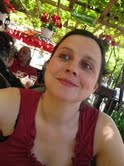 Kerry Clare reads and writes in Toronto where she lives with her husband and daughter. She is an editor, fiction-writer, essayist, book reviewer, literary critic and writing instructor, and has been blogging since 2000, maintaining the literary blog Pickle Me This since 2006. Her essays, short fiction and criticism have appeared in magazines including The New Quarterly, The Globe and Mail, Quill & Quire, Canadian Notes & Queries, and Readers Digest. Her essay “Love is a Let-Down” was featured by the UTNE Reader, and shortlisted for a 2011 National Magazine Award.
Kerry Clare reads and writes in Toronto where she lives with her husband and daughter. She is an editor, fiction-writer, essayist, book reviewer, literary critic and writing instructor, and has been blogging since 2000, maintaining the literary blog Pickle Me This since 2006. Her essays, short fiction and criticism have appeared in magazines including The New Quarterly, The Globe and Mail, Quill & Quire, Canadian Notes & Queries, and Readers Digest. Her essay “Love is a Let-Down” was featured by the UTNE Reader, and shortlisted for a 2011 National Magazine Award.
Visit Kerry’s site at www.picklemethis.com
Scott Rosenberg forgot to put women in his definitive history of blogging, Say Everything: How Blogging Began, Where It’s Going and Why It Matters except for Dooce, of course, who was infamously fired when her boss discovered her blog, and who also documented her mental breakdown following the birth of her first child a few years later. Rosenberg does permit Blogger co-founder Meg Hourihan a brief appearance in his book, running out of her office in tears, but other than these two women, the oversharing, cyber-feuding, troll-feeding history of blogs has mostly been an all-male affair.
Margaret Wente thinks so too. “It’s more of a guy thing,” she wrote in a Globe and Mail column last year. “Not many women are interested enough in spitting out an opinion on current events every 20 minutes.” Of course, Margaret Wente was also demonstrating a better understanding of bloggers than she was letting on, intentionally provoking women to link to her article in their furious response posts, thereby delivering herself an barrage of page hits.
But Wente’s point of view was still a curious one, and just as curious was Scott Rosenberg’s apparent presumption that women had had so little part in how blogging began, where it’s going, or why it matters. All this particularly curious from the vantage point of my own little blogosphere (and there are, in fact, many blogospheres, as Scott Rosenberg correctly asserts in his actually quite interesting book), in which male bloggers are ridiculously scarce.
I’m not saying there aren’t any male bloggers—I just don’t read many of them. Though I also don’t read a lot of blogs written by women too: craft blogs, parenting blogs, home renovation blogs, fashion blogs, pregnancy blogs, infertility blogs, food blogs, and blogs about vintage rocking chairs. But the blogs that interest me, the literary ones— from the perspectives of common readers, academics, novelists, poets, mothers, book fetishists, illustrators, librarians, literary gossips, and critics alike—almost all of them are written by women.
Perhaps in some blogospheres, opinions spat out every 20 minutes actually constitutes a blog, but not in mine. Instead of, “Look at me!”, the bloggers I like best use their platform to say, “Look at this!”, and point me to wondrous things in the world. On these blogs, I find book reviews and recommendations, photographs, essays, critical responses to current events literary or otherwise. I find conversations, I find art opened up. I hear stories told and retold, I hear people asking questions, I see people making connections—between each other, between the books they’re reading, and the literature they’re making.
Of course, not everything is always so profound. And there are many more terrible blogs than there are good ones, but there are good ones, so many good ones. And what I mean to say, I think, is that there is something inherently womanly about blogging as I’ve come to understand it. Not just, of course, because it’s the latest in a long line of endeavours in which women have partaken in involving unpaid labour and undervalued craft. Or because the anonymity offered by blogs also offers a spectacular forum for women at their very bitchiest, though that’s a part of it too. But rather that the community-making that’s so essential to blogging seems like the kind of thing women have always been doing, whether historians saw fit to include it in the official record or not.
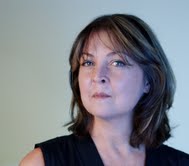 Rahna Reiko Rizzuto is the author of the memoir, Hiroshima in the Morning, which is a National Book Critics Circle Finalist and the winner of the Grub Street National Book Award. Her first novel, Why She Left Us, won an American Book Award in 2000. She is a recipient of the U.S./Japan Creative Artist Fellowship, funded by the National Endowment for the Arts. Her work has appeared in numerous anthologies and publications, including the L.A. Times, Salon.com, the Crab Creek Review, the Huffington Post and the Progressive Media Project. She is Associate Editor of The NuyorAsian Anthology: Asian American Writings About New York City, and teaches in the MFA program for creative writing at Goddard College.
Rahna Reiko Rizzuto is the author of the memoir, Hiroshima in the Morning, which is a National Book Critics Circle Finalist and the winner of the Grub Street National Book Award. Her first novel, Why She Left Us, won an American Book Award in 2000. She is a recipient of the U.S./Japan Creative Artist Fellowship, funded by the National Endowment for the Arts. Her work has appeared in numerous anthologies and publications, including the L.A. Times, Salon.com, the Crab Creek Review, the Huffington Post and the Progressive Media Project. She is Associate Editor of The NuyorAsian Anthology: Asian American Writings About New York City, and teaches in the MFA program for creative writing at Goddard College.
Visit her website at www.r3reiko.com
As a writer, I have always been attracted to what is hidden. I write to understand what is not understandable, what is not even acceptable, and to find a deeper truth in what has not been spoken.
I write war, trauma, history.
I also write family, without planning to do so. And motherhood. This is the natural consequence of writing who I am. In our culture and our stories, gender is everything. I have learned – not always in the nicest ways – that even when I am sure that my own preoccupations have nothing to do with gender, my readers will still bring their own, gender-based expectations to my work.
When I began writing, I was working in fiction: the just-discovered (by me) story of the Japanese American internment during WWII, in which my mother and her family were stripped of their citizenship and held in camps with some 120,000 other Japanese Americans and their parents. I had never studied this in school, had never heard it mentioned in my family. My own mother seemed to have forgotten she was ever interned (granted she was only one month old when she was sent to camp, but close to five when she was finally released). I was shocked by the denial, the lies, the racism, that surrounded that circumstance, and as I interviewed many former internees about their experiences, I was surprised at how many told me they never talked about it, and especially, that they had never told their children. They gave me what had not been recognized, nor reconciled. But in the end, something else, unrecognized, emerged as well: my Japanese-American internment novel became the story of “a mother who leaves her child.” Although I spent five years working on Why She Left Us, it was still a surprise when an interviewer pointed this out to me after it was published.
Some twenty years after I started dreaming my first novel, this issue of child abandonment would come crashing back into my life. But in the meantime, I went to Japan for six months to interview the survivors of the atomic bombing. This material became the center of a memoir, Hiroshima in the Morning, which was published in September, as well as a forthcoming novel.
What I learned through all of these interviews is that memory is not fact, nor is it history. Memory is narrative, a way to rewrite personal experience, to rewrite self. The internment stories were full of that: of young men volunteering to fight even after being stripped of their citizenship, of the first American generation helping to get their own parents and children “peaceably” interned. The Hiroshima survivors also told their stories to explain that the loved ones they lost had sacrificed for world peace, and the trauma they had lived was not in vain. I listened to these “healing narratives”, and then,
the September 11th attacks on the United States shattered our sense of safety, even as far away as Hiroshima, and I saw for the first time, the nightmares that lay beneath the carefully constructed memories.
The narrative of trauma is the narrative of rewritten self at its most basic level. It is requisite so that people can sleep at night. It allows them to transcend the shock, the shifts in their identity and in their understanding of reality. If they could assign reasons for that bombing, and those reasons did not now exist, then they were safe. That was the story they were telling me, and telling themselves: We survived. It is over.
In Hiroshima, I realized that I, too, had told myself my own story, and that my explanations were coming apart. Far from home, my former identity was becoming foreign to me, and my marriage was failing. I had never wanted to be a mother, but had become one, and now, faced with divorce, I had to find a way to challenge the traditional mother role I so feared in order to be a good, present mother to the children I loved. I rejected the myth of the perfect mother that our society relies on. And the support and criticism that I eventually attracted had nothing to do with Hiroshima, or war. It was a debate about what women should do: what we are allowed, what is expected, what is “natural,” versus what we want to do with our lives and who we want to be.
I was vilified for leaving my children (unnatural!), even though I hadn’t left them. I was thanked for having the courage to tell the truth by women who were still looking for the courage to speak their own truth, or who had spoken and were suffering from the backlash. I was a writer who had written about her research and her observations and her family, but I was attacked as a failed woman. The debate about my motherhood obscured everything else I had to say.
As humans, we decide what we want our story to be and cast ourselves accordingly. As writers, we are compelled to share that narrative and explore it publicly. I didn’t set out to grab a soap box on behalf of women’s choices, but I didn’t expect how strong my readers’ gender-based assumptions would be. By questioning the myths of motherhood, I have turned the tables on myself. My story has become just a bit of research for other women, as they rewrite their own stories to recreate themselves.
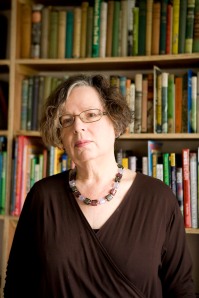 Adèle Geras is the author of over 90 books for readers of all ages. Her latest adult title is A HIDDEN LIFE (Orion), her latest young adult book is DIDO ( Corgi), and she has recently brought out a picture book (illustrated by Shelagh McNicholas) for younger children called MY BALLET DREAM (Orchard). She lives in Cambridge.
Adèle Geras is the author of over 90 books for readers of all ages. Her latest adult title is A HIDDEN LIFE (Orion), her latest young adult book is DIDO ( Corgi), and she has recently brought out a picture book (illustrated by Shelagh McNicholas) for younger children called MY BALLET DREAM (Orchard). She lives in Cambridge.
Visit her website at www.adelegeras.com
“I’m very conscious, when I go into schools, that I’m the writer of books mainly for girls. I’m not in any way ashamed of this. I was born a girl, I have given birth to two daughters, I have no siblings, I went to a school which was exclusively for girls, I’ve taught girls for four years before I became a writer and I know next to nothing about little boys. I’m on a steep learning curve, having two grandsons, but before they were born, I’d never really met any boy babies or small boy children. My first encounter with the male sex, therefore, was as boyfriends, and so I’m okay when writing for teenagers or adults. I’m also fine with dads, grandfathers, uncles and older males….it’s just the younger ones I’ve mostly avoided. Also, my own preoccupations are with things not traditionally associated with boys. I don’t write adventures. My books are full of clothes, food, emotions, relationships. I’m not given to fantasy (though I do like a nice spooky story as much as the next person and have written lots of those) and in general I’m impatient with books and movies which are full of special effects and short on dialogue.
Some of my covers are pink, I admit it. Most have girls on the cover. Thus it is that whenever I’m in a school and the books are spread out on display, a look of growing anxiety crosses the faces of any boys in the class. Once, a kid put up his hand and asked me: “Please Miss, have you ever written any books about killer crabs?” It was hard to destroy the hope in that child’s eyes, but I had to confess that killer crabs are not part of my artistic universe.
The first time I spoke at an all-male preparatory school, a strange thing happened. I was a little nervous to see the ranks of boys of about 10 sitting in a kind of theatre. There were hundreds of them, it seemed to me. They were looking down at me and beside me was a table crowded with lots of my titles. Predominant among them were books from my LITTLE SWAN series, which is about a girl called Weezer who wants to be a ballerina. The covers of this series were pink and blue and lilac and beige and they were decorated with ballet slippers picked out in silver foil. I stood up and before I did anything else, I read out loud two pages from the beginning of my novel TROY in which a young lad of about 16 kills someone with a sword. That was like a kind of Open Sesame. When the talk was over, the boys fell on the books laid out on the table and bought most of them. I’d proved myself to be a decent author by being able to describe a death in battle and so they were willing to forgive my pastel covers and also willing to part with a bit of money to buy a book, even if it wasn’t the one from which I’d read a gruesome extract.
Which leads me to my moral: boys are just as likely as girls to read a girl’s book, if only you can get them past the cover somehow. Boys, just as much as girls, like reading about emotions and relationships and families and private events if you persuade them to try such stories for themselves. Lately, marketing in children’s books has been very much geared towards getting boys to read, so that girls’ books are less frequently hyped, and this makes a certain kind of sense. Girls have always had the imagination to read boys’ books with no problems whatsoever and anything we can do to get boys to try books which have a heroine rather than a hero is worth doing.”
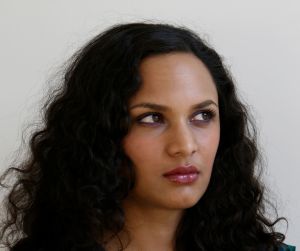 Tina Biswas was born in England to Bengali parents in 1978. She read Politics, Philosophy & Economics at New College, Oxford. Her first novel, Dancing With The Two Headed Tigress, is a comedy of manners, set in England, Ireland, and India. Her second, The Red Road, deals with the Naxalite Uprisings in the 1960s and 70s of West Bengal. Biswas lives in London and is currently working on her third novel and first screenplay.
Tina Biswas was born in England to Bengali parents in 1978. She read Politics, Philosophy & Economics at New College, Oxford. Her first novel, Dancing With The Two Headed Tigress, is a comedy of manners, set in England, Ireland, and India. Her second, The Red Road, deals with the Naxalite Uprisings in the 1960s and 70s of West Bengal. Biswas lives in London and is currently working on her third novel and first screenplay.
Tina may be contacted at tina121b(at) hotmail (dot) com
“During a recent interview, the esteemed writer V S Naipaul claimed that there is not a single woman writer (dead or alive) equal to him. So far, so good. He then went on to claim that women writers were defined by their “sentimentality” and their “narrow view of the world” and described writing by Diana Athill – the magnificent editor who helped put Naipaul on the literary map – as “feminine tosh”.
The Writers’ Guild of Britain, when asked to respond to Naipaul’s criticisms, said that it would not “waste its breath”. Other journalists have responded by listing women writers who they believe are devoid of sentimentality and are every bit as talented as Naipaul. Yet others have chosen to take personal digs at Naipaul – he is a sexual sadist, a misogynist, a racist – in countering his controversial claims.
Naipaul is the writer who inspired me to write. Indeed, along with Philip Roth (another male writer accused of misogyny, mistakenly I believe), he is the writer who I have felt most connected to and inspired by. So, although disappointed, if not at all surprised, by Naipaul’s latest outburst, I feel the need to examine more closely what he said, and establish if there is indeed any truth in it. After all, how could the man who has written so beautifully, so engagingly, so correctly about the world, get this so wrong?
First of all, I looked up the word “sentimental”, wondering if there was some meaning which I had missed.
1. expressive of or appealing to sentiment, especially the tender emotions and feelings, as love, pity, or nostalgia: a sentimental song.
2. pertaining to or dependent on sentiment: We kept the old photograph for purely sentimental reasons.
3. weakly emotional; mawkishly susceptible or tender: the sentimental Victorians.
That Naipaul used the word “sentimental” as an insult is not in doubt; that is now its common usage in literary criticism. But what exactly was he driving at? I do not think for a moment that he meant that women write only about puppies and rainbows, but that whatever they write about, they approach their subject in a manner which depends on weak emotion and not tough intellect. This in itself is a very dimidiated and skewed perception of what the world contains: on one side, there lives female soft-heartedness, feeble emotion (Love? Yuk!), and fuzzy feelings; the other side is inhabited by male clear-sightedness, hard sensibility (Anger? Huzzah!) and cerebral rigour. That Naipaul seems to believe that this male outlook (as implicitly defined by him) is manifestly superior is a rather foolish and simple way of understanding both writing and the world which is written about. There are a multitude of different lenses through which the world can be viewed and written about, and writers should not be judged on which lens they choose, but only on how well they use their camera and how their photographs turn out.
Yet, what is interesting is that many (not all) male and female writers still do tend to use quite different criteria when constructing their narratives. In these supposedly egalitarian times, why is that? I believe that it is because we, the reader, expect different narratives from men and women, and that this expectation comes from a very early age; the market supplies what is demanded. J K Rowling insisted on not using her first name on the covers of her books so that boy readers were not put off from picking up them up. In the UK, 74 per cent of the books featured in the London Review of Books were written by men, and 78 per cent of the reviewers were male, despite more than 50 per cent of literary fiction being written by women. When growing up, I would choose male authors over female ones, because of some misguided perception that men wrote about more serious matters (I’m now not sure what exactly constitutes a serious matter!), and even if they were not writing about serious matters, they were at least writing about silly matters in a serious way.
This sort of bias can only come from a deeply prejudiced society. The kind of society where men are chefs but women are cooks. Where men are just men but women are wives and mothers and daughters and sisters. So when Naipaul accuses women of having a “narrow view of the world”, he means that they have a domestic view of the world, and from his chauvinistic standpoint, this domestic view is petty and banal and uninteresting and can only ever be inferior to the grandly political. But for such an insightful writer, he therefore completely fails to comprehend the relevance and importance of the domestic and how even his own life story has been shaped by not only the great sweep of history but also the small but equally powerful brush-brush-brush of the interior life. So when women choose to write about personal relationships and men think that is not important or interesting, that is their failing and their inability to value that which is closest to home.
At the same time, I fervently hope that we reach the point where women can write about whatever they like, be it domestic or not, and not be judged on their women-ness but only their talent. It is rather depressing that even now, there are deemed to be feminine and masculine ways of writing and feminine and masculine subjects to write about, as opposed to just good or poor ways of writing, and interesting or boring stories. But the only way this point can be achieved is for both readers and writers to let go of their preconceptions and prejudices, and to approach a book with a spirit of openness, broad-mindedness and sensitivity, qualities which unfortunately seemed to have passed Naipaul by on this occasion.